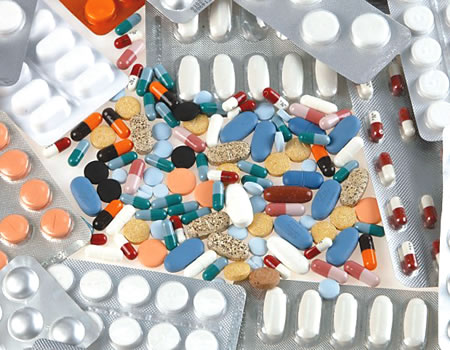Checks at major retail outlets some indicated that the prices had risen by more than 100 per cent, with most of those drugs imported into the country.
For instance, the price of ArithemeterLumefsntrin had risen from N975 to N1, 350, while that of Amilodipine went up to N622 from N195 per pack.
Similarly, an essential drug for the treatment of hypertension Lisiropril 10mg now sells for N337.5 instead of N197.
Major stakeholders in the industry blamed the geometric rise in the prices of the essential drugs to depreciation in the nation’s currency as more than 70 per cent of the drugs in Nigeria are imported.
Both the national president of the Pharmaceutical Society of Nigeria (PSN), Alhaji Ahmed Yakassi and his Association of Community Pharmacists of Nigeria (ACPN) counterpart, Dr Albert Kelong Alkali, called for immediate rescue measures by the Federal Government to save the situation before it was too late.
Dr Alkali, noting that price of drugs was always subject to market dynamics, declared that the few that their prices were reduced, included those locally manufactured because Naira had stabilised to an extent or those with high turnout in sales.
“We cannot afford to keep things on the shelve until they expire, so we only add a little margin to compensate for other expenses like staff salary, rent, so that the cost of the drugs will be minimal.
“There is one cheap brand of antihypertensives that is called amlodipine, it is the cheapest of them all. Its price has doubled and this is a big challenge to people.
“That is the reason we are also advocating for drug security, meaning that the country should be able to produce at least 70 per cent of its drug requirements,” he added.
PSN president, Alhaji Yakasai, said that until Nigeria supported increased local drug manufacturing and full implementation of the national health act, prices of essential medicines would remain high.
Yakasai added that Nigeria, being a signatory to the ECOWAS trade liberalisation policy since 2016, had made local production more difficult due to taxation.
He said increment in prices of medicines started when Nigeria signed the ECOWAS trade liberalisation policy, where raw materials, including packaging materials, used for medicine manufacturing, attracted as much as 20 per cent import duties while all drugs attracted zero import duty.
According to him, despite the hue and cry by stakeholders on the policy due to the detrimental impact on local medicine production, it was not reverted.
Yakasai said although the policy in smaller ECOWAS countries that wanted affordable medicines for its citizenry, without medicine manufacturing outfits may be okay, the case was not so in Nigeria with over 150 medicine manufacturing outfits.
ALSO READ: Kano govt announces 20 per cent salary increase for teachers
He said that on his assumption of office, the Federal Government at a meeting promised to cushion its effect on local production with a 20 per cent Import Adjustment Tax (IAT) on imported medicines, to save the industry from collapse.
“It will not discourage importation, people will import and add more to it to make a profit,” he declared.
Alhaji Yakasai , who remarked that despite Nigeria’s high capacity for local drug production, declared that the country still imports almost 75 per cent of its medicines.
He decried the situation making drugs inaccessible and affordable to the common man in Nigeria, saying this may not improve unless the National Health Act is implemented to ensure everybody is covered by the health insurance scheme.
The PSN boss also called on the government to patronise locally made medicines to promote the sector, saying “even what Nigeria has the facility to produce, the government will give out to contractors to import from India.”
He added, “If they want credit, they buy from Nigeria. But if they have money, they give it to a friend as a contract to go and import from abroad. It is not fair.”
Alhaji Yakasai urged Nigeria to take a cue from countries like Sudan, which provided a good environment for medicine manufacturing and is now enjoying an influx of drug companies both for production, as well as research and development.
However, he said PSN will soon be coming up with a strategic plan to ensure all stakeholders, including pharmacists and government, know their roles in ensuring safe, assessable and affordable drugs for the country.
Dr Alkali linked the exorbitant prices of medicines to the current high naira to dollar exchange rate.
According to him, the prices were dependent on the current exchange rate is given that about 80 per cent of medicines were imported.
He stated “The prices have more than doubled because close to 80 per cent of drugs in Nigeria were imported. Following the issue of currency devaluation or high naira to dollar exchange rate, most customers fight my colleagues in their pharmacies because they assume that we are increasing prices unnecessarily.




